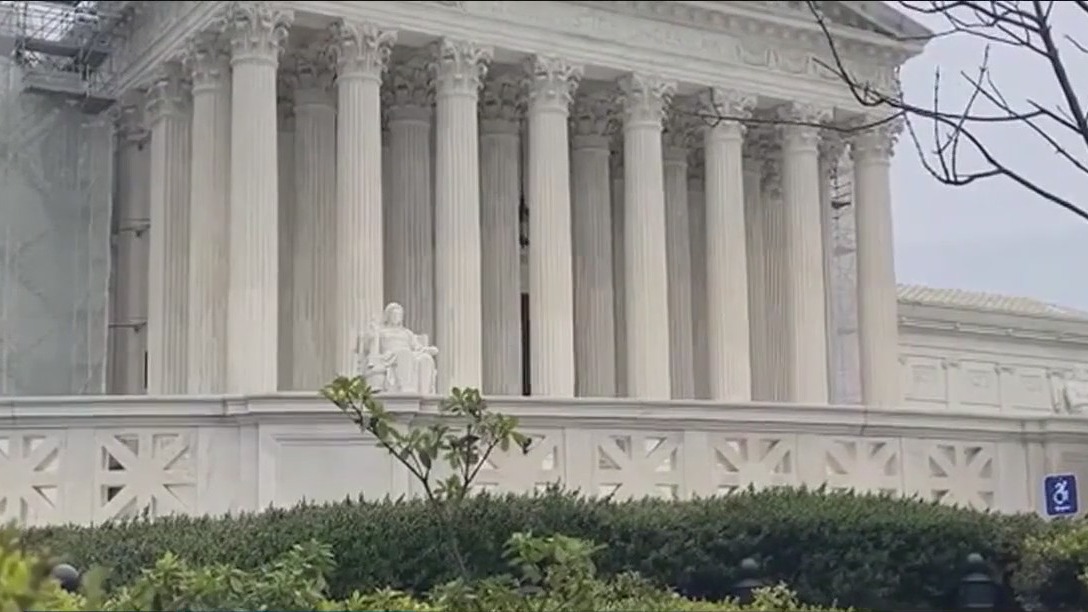Illinois leaders slam Supreme Court ruling backing Trump immigration move

Illinois leaders slam Supreme Court ruling backing Trump immigration move
On the final day of its term, the U.S. Supreme Court issued a slew of rulings, including a major decision on President Donald Trump's attempt to end birthright citizenship for the children of illegal migrants.
CHICAGO - On the final day of its term, the U.S. Supreme Court issued a slew of rulings, including a major decision on President Donald Trump's attempt to end birthright citizenship for the children of illegal migrants.
What we know:
The court ruled 6-3 along ideological lines to limit the ability of district court judges to issue nationwide injunctions, including on executive orders such as Trump’s policy targeting birthright citizenship.
Trump celebrated the ruling Thursday morning.
"Hundreds of thousands of people are pouring into our country under birthright citizenship and it wasn't meant for that reason, it was meant for the babies of slaves. So thanks to this decision, we can now properly file to proceed with these numerous policies and those that have been wrongly enjoined in a nationwide basis," Trump said.
Local Reaction:
Meanwhile, Illinois' Democratic leaders condemned the decision.
"Today's Supreme Court ruling is a dangerous sign that Donald Trump is further consolidating power and putting his own interests above the needs of the American people. As Trump and his allies continue to attack the rule of law and undermine the foundations of the United States Constitution, Illinois will stay true to who we are: we are the Land of Lincoln and we will forcefully defend the freedoms and rights of our people," said Gov. JB Pritzker.
U.S. Rep. Delia Ramirez, D-Ill., also criticized the ruling.
"Today's decision does not end birthright citizenship. It creates a two-tier system for those born in states that uphold and defend the Constitution versus those born in states writing to undermine the Constitution to bow before Trump's regime," Ramirez said.
Legal Context :
Legal scholars cautioned that the decision does not directly alter birthright citizenship but instead changes how challenges to federal policy can be brought.
Carolyn Shapiro, a Supreme Court scholar and professor at Chicago-Kent College of Law, said the ruling requires plaintiffs to join class-action lawsuits in order to seek injunctions that apply nationwide.
"Plaintiffs can come in and say ‘we want a nationwide class’ and if they prevail in getting a preliminary injunction that would apply nationwide," Shapiro said.
The broader implications of the ruling remain uncertain, but legal experts warn it could complicate efforts to block future executive actions in federal court.

